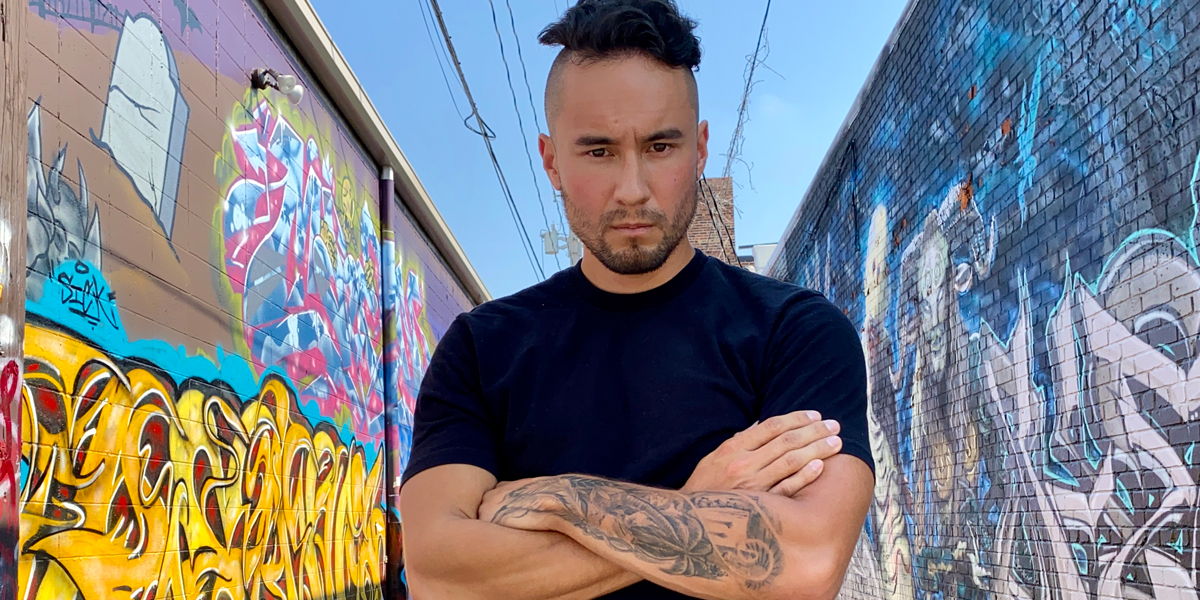Reformist Focusing on Decarceration
On a quest to find meaningful work, Jay Austin (Quincy University, 2015) combines the ambition that led him to start a business while still in college with the lessons he’s learned along with the way in his efforts to support criminal justice reform.

Though the former chapter president found success early on, he also gained valuable insight when he steered his first business in the event industry through an acquisition process. “One of the things I learned was I was not as good as I thought I was—it’s humbling to sit down with a team of lawyers grilling you about your business, and realize you're not as good at accounting as you should have been,” Austin said. “I was a college kid, what did I know?”
While Austin said an acquisition may be every entrepreneur’s dream, going through it at age 23 was more of a bad dream. However, he remains optimistic, motivated and inspired by the courageous accomplishments of his grandmother who was a quiet, but determined activist.
After his first business, Austin persevered starting several small ventures focused on low-income neighborhoods similar to where he grew up. He wanted to build businesses and hire people but did not succeed. “That was just really hard, and I couldn't quite figure it out,” Austin said.
In 2017 a new business venture took hold and Austin built a video production company in Kansas City. His company grew to include 14 videographers in just over two years. With photoshoots around the world, the company thrived, but Austin grew frustrated feeling his work lacked meaning.
“We were just selling widgets,” he said. “We had great clients and some of them were very mission-driven, but it was stressful and the stuff we were doing wasn't as meaningful as I wished it was. I was looking at our city and we've got a very divided city…. I really wanted to elevate black and Latino voices right now and we've got this magical thing called a camera. I thought, ‘Let's use this power.’”
Austin felt his business was successful enough to do pro bono video work, so he sought out and began to work with young creators from Kansas City. “It was interesting because, at this time, I really started becoming myself. I had spent so much time as a poor Brown kid trying to assimilate into a different culture other than mine that I didn't really know who I was,” said Austin. “Because of the research I did for videos I became much more informed on what had shaped my childhood experience and what shapes the experience of a whole bunch of poor people. This was very illuminating. I didn't become woke or anything. It was just, ‘Oh, I guess that explains that explains why that kid's dad was doing that, and why that kid's mom looked like that.’ I just started realizing things.”
In September 2019, Austin made another move launching JWA, a media company focused on difficult issues and specifically decarceration and criminal justice reform. “It’s a small agency that provides really fierce marketing guidance for organizations whose efforts ultimately lead to decarceration,” Austin said. “We think of our little agency right now in terms of having two audiences. From a content perspective, we're focused on people who are going to become the next generation of reformists and decarcerate the U.S. and we provide marketing guidance to organizations whose efforts lead to decarceration. How do we lower our incarcerated population and how do we prevent people from becoming incarcerated in the first place? It's all about decarceration.”
Based in Kansas City and Atlanta, JWA’s services focus on existing organizations that are already doing the work of criminal justice reform. “We make a judgment call on whether their reform actually leads to decarceration and then we are the background for them-- typical creative agency relationship,” he said.
Austin is inspired by the stories he tells through his work and is committed to continuing his work toward criminal justice reform even though, as a friend recently reminded, he may not enjoy the shade of the trees he plants. “It is sad because we're talking about days and years and decades of people's lives, who, maybe if they were out there, could have been contributing to ours. There is a real human impact, but there is hope for changing certain parts of the system and getting it closer and closer to being more just.”
For those looking to overcome certain inequities Austin offers this advice, “Approach the issues and the people who look like your adversaries with tremendous empathy and avoid getting offended at virtually all costs.” Austin said he’s found he can make some of the most unlikely allies and can begin working together when approaching with empathy.
